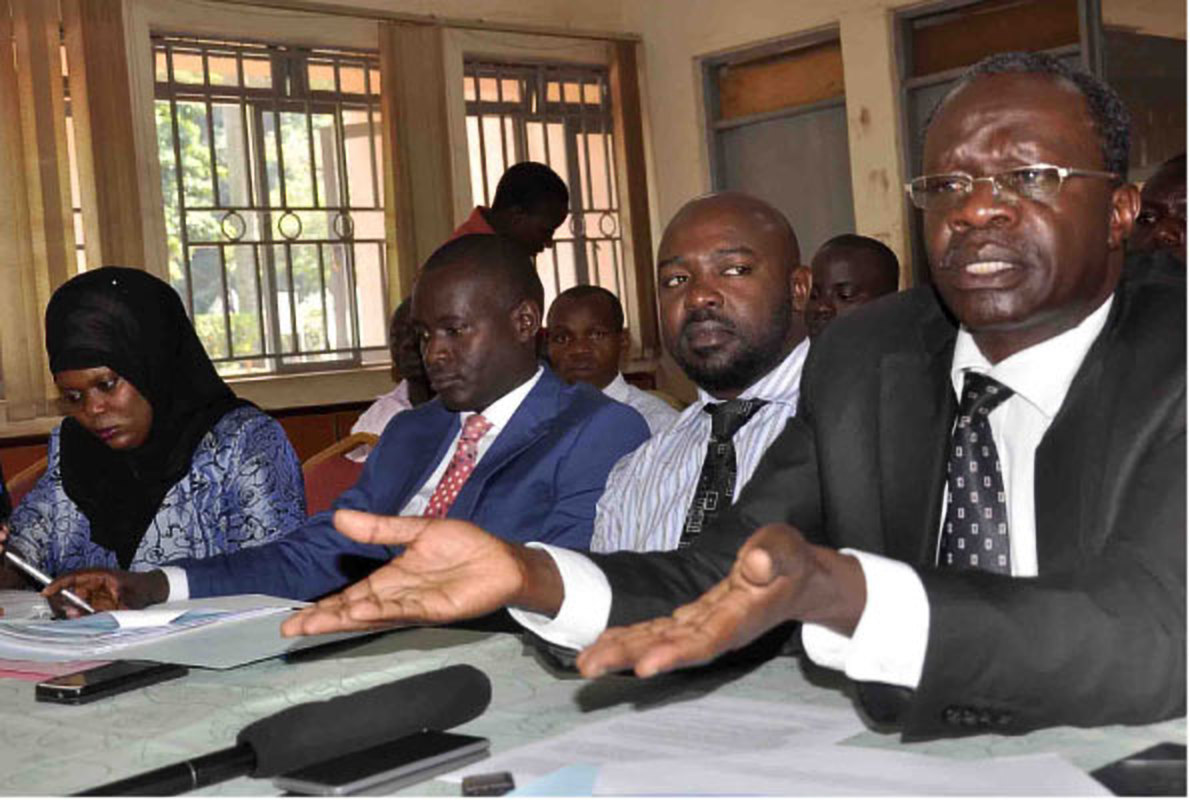
ADJUMANI—Rows of egg plants, spinach, Cow peas and pepper seedlings fill a one acre piece of land in an open space behind Mangula refugee settlement camp in Adjumani district.
The new trial garden is situated in a home for about 4,744 refugees hailing from Southern Sudan now living in Mungula who once resided in farming communities before the South Sudanese Civil war forced them from their homes.
The Food Agricultural Organisation director General Dr José Graziano da Silva bends and straightens the plastic pipes in the garden, he is teaching the refugees how to use irrigation to increase production.
This is at Oluala Farmers Irrigation group, officially commissioned August 29, 2017 as a model to increase self-reliance and integrate refugees with the host communities.
The Shs 20m refugee irrigation project brings the Ugandan host in Mungula village [30%]and South Sudan refugee populations [70%] together to jointly participate in economic and livelihood activities.
And in a swift of strategy, the United Nations will now be providing high-quality, early maturing and high-yielding seeds so that refugees start planting their own food instead of relying on WFP.
Dr José Graziano da Silva, the director general of the Food Agricultural Organisation (FAO), says that they will be providing seeds and simple practical gardening tools to enable refugees farm and supplement their own diets with fresh foods.
“The problem is that we don’t have enough resources to provide food on a sustained basis nor can we help them go home until the countries of origin are secure; that is why we need to have them involved in farming in order to supplement their diets,” said Dr Da Silva.
Dwindling relief food rations and diminishing land offers by host communities amid growing refugee population, and with no end in sight to the South Sudan war, has prompted humanitarian agencies to explore long-term solutions to address feeding needs.
FAO together with the local government of Adjumani are supporting crop growing in refugee settlement backyard gardens by setting up irrigation projects in Oluala, Yeyo and Aleer refugee resettlement camps using sunken beds and other technologies.
“We secure land from the local community, set up irrigation schemes, provide Eggplant, Tomato, spinach, Cow peas and pepper seedlings and empower the refugees to start nursery gardens for improving their livelihood,” said Ms Beatrice Okello, the senior Proramme officer FAO Uganda.
Ms Okello explained that refugees would sell the products from the nursery gardens and use the cash to buy food at the local markets where host and refugee communities trade side by side.
She said FAO trains the refugees and the host communities on layout, nursery bed management, climate Change Smart agriculture, back yard gardening and construction of sunken beds.
“We give out seedlings; give out a hoe, a rake, machete and sprinkler. And besides the irrigation schemes, we also encourage the sunken beds that help keep water for longer, to allow the crop to grow to maturity,” said Ms Okello.
Ms Florence Angua, 43, one of the beneficiaries of the FAO project said their children have been falling ill easily because they lacked vegetables in the diet.
“We have been taught by FAO to start gardening even on small scale in our camps, we have the knowledge and now I want to plant my own food to supplement the food and cash we get through WFP, said Ms Angura from Yei in Southern Sudan.
Larger farms in the future
Ms Okello said FAO has identified areas within the refugee camps allocated for agriculture that are suitable for rainwater harvesting and cultivation and that plans are underway to develop rainwater-harvesting structures to assist the refugee and host communities to produce more and higher quality food.
“Backyard gardens are an entry point to strengthening the ability of the refugees to start growing their own food and our goal is to improve nutrition and food security at the household level and then progress towards larger-scale crop production,” said Ms Okello.
Ms Okello said they have already given out sukuma wiki, tomatoes, spinach, egg plants, soya beans, beans and maize, onion and carrots to the refugees to plant this season.
She explained that refugee and host families have each, respectively, get 2.5 kilogrammes of Maize and 2.5 kilogrammes of cereals and vegetables for the second planting season and that the seeds are worth Shs17m.
The minister of Agriculture, Animal husbandry and Fisheries Mr Vincent Ssempija said through provision of irrigation projects, FAO is also supporting local farmers to start dry land farming using rainwater harvesting technologies.
Mr Ssempija, who presided over the distribution of the seeds at Agojo settlement camp in Adjumani last year, said food security without addressing nutrition is wrong and urged the refugees to start growing vegetables to supplement their diet.
“These activities are aimed at improving agricultural production for both the refugees and the host populations and the host community farmers are also expected to supply refugee markets with produce, enhancing economic integration,” Said Mr Ssempija. Ends







